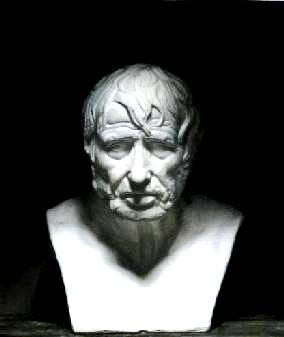Dear Classical Wisdom Member,
What is a Statesman? The opposite to a politician, the statesman (or stateswoman) is a respected, skilled and experienced leader who actually aims to work for the common good of the people they represent.
I know… I know… it seems to be a very foreign concept in our modern age. However, realising this distinction may be the first step to reintroducing it!
Fortunately we have a lot of excellent examples to draw on and even the great thinker Cicero outlined exactly the qualities that were necessary to be such a person, and high expectations they were.
This month’s Classical Wisdom Litterae Magazine delves into this important tradition, investigating the great statesmen of the ancient world… Classical Wisdom Members can find this issue below.
And to get us started, I thought a look at Seneca… and his religious views... might prove though-provoking. What did Seneca believe? Was he truly a Stoic? And would he have made Cicero’s ‘cut’?
Read on below to learn of the Spirituality of Seneca.
All the best,
Anya Leonard
Founder and Director
Classical Wisdom and Classical Wisdom Kids
While not all in this month's Classical Wisdom Litterae issue may live up to Cicero standards, nonetheless every example within this edition should be inspiring, educational or at least, thoroughly entertaining.
It is a collection of great minds... and sometimes greater personalities.
The Spirituality Of Seneca
By Van Bryan
Go ahead, I’ll wait.
…
You back? Good! That wasn’t so bad. So, where to start?
Perhaps it is important to note that Stoicism as a philosophy taught, above all else, that we ought to live according to nature. It is this sentiment more than anything else that is the goal of any Stoic follower. And it is this notion that has been repeated again and again, from Zeno to Seneca to Marcus Aurelius.
But what do we mean by “nature?” We see that Seneca makes reference to altars built upon the sources of great rivers. He recounts how men have worshipped hot geysers and describes with great admiration the power of nature in creating mountain caverns. Seneca tells us that if we were to truly examine nature in all its glory, we would be stirred by religious awe.
And so we see that Seneca is likening the idea of nature to an imposing sort of spirituality. This is perhaps unsurprising because as far as the Stoics were concerned, nature was not only related to God, it was synonymous.
Keep reading with a 7-day free trial
Subscribe to Classical Wisdom to keep reading this post and get 7 days of free access to the full post archives.





